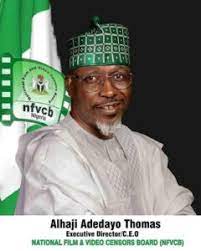President Muhammadu Buhari is planning to spend N1.96 billion on new vehicles in the Presidential Villa amid a deepening economic crisis and cash crunch that has seen the government admit to owing contractors nearly a trillion naira.
The State House Permanent Secretary, Tijjani Umar, said next year’s elections would necessitate frequent travels and thus the need to replace the presidential vehicles. Nigeria’s electoral law prohibits using state apparatus in any party’s advantage.
The vehicles in the Presidential Villa are due for a replacement, Mr Umar said on Thursday while defending next year’s budget proposals before the Senate Committee on Federal Character and Intergovernmental Affairs.
“This has resulted in frequent breakdowns and an unsustainable expenditure on repairs/replacements of parts,” Mr Umar declared.
The whopping sum is required to purchase what Mr Umar described as “operational vehicles” — some of which are “very expensive”. He said some of these vehicles would be used for travel as the country slipped into an electioneering mood.
Mr Umar is however worried that the N1.96 billion “would still be inadequate to meet existing requirements,” claiming the administration was frugal enough despite budgeting such a whopping amount om vehicles amid deepening economic crisis.
“2023 is an election year which entails frequent travels with associated costs as well as the replacement of vehicles by the incoming administration,” he said.
The N1.96 billion earmarked for Aso Rock’s vehicle replacements is part of the 2023 State House budget proposal. Like Mr Umar, several heads of ministries and agencies have lamented the rigorous cuts in the 2023 budget by the scrutinising national assembly committee.
Mr Umar had argued that the 2023 budget proposal of N21.1bn is comparatively lower than the 2022 appropriation of N40.1 billion by 19.01 per cent. He also said commitments to facilities in the State House would take 65 per cent of the total appropriation, noting the sum of N7.20 billion has been proposed for the year 2023 as against N7.76 billion in 2022.
However, the Buhari-led administration is proposing to spend nearly two billion naira to replace the Aso Rock vehicles at a time Nigerians are lamenting the rising cost of living and economic hardship.
Earlier this year, the Nigeria Employers’ Consultative Association (NECA) warned that Nigeria’s economy was on the brink of collapse. The association noted that soaring inflation, energy cost and dwindling naira value against foreign currencies were battering the nation’s economy.
The Director-General of the association, Wale Oyerinde, added that the economy was crumbling due to Nigeria’s poor aviation sector, stuttering education system, rising debt, depleting foreign reserves and rising fuel subsidy expenses.
In August, the Minister of Labour and Employment, Chris Ngige, confessed that Nigeria was broke, adding that the government does not have money to prosecute capital projects in the coming year.
“As you can see, the dollar that has been hovering around N500 and N600 is now above N700,” he said. “The truth is that there is no money anywhere. The money that the FAAC (Federation Account Allocation Committee) has been sharing is money from taxes, customs and other revenue-generating agencies.”





